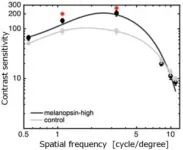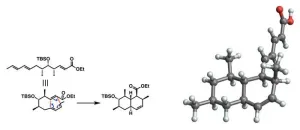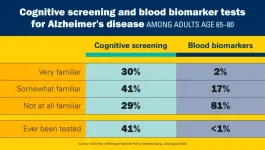(Press-News.org) Prof Sei-ichi Tsujimura of the Nagoya City University and Prof Su-Ling Yeh of National Taiwan University and Kagoshima University, have discovered that our visual acuity (contrast sensitivity) can be improved by using a light with a special spectrum that can selectively stimulate melanopsin cells in the retina.
Background
The retina of our eye contains cone photoreceptor cells, which identify colors in bright environment, and rod photoreceptor cells, which work in the dark. It has long been thought that humans see and identify objects by these two types of photoreceptor cells alone. On the other hand, around 2000, the third photoreceptor cells called melanopsin ganglion cells (ipRGCs) were discovered in the retina. The melanopsin cells have been reported to influence circadian rhythm regulation, pupillary light reflex, brightness perception, mood and so on. For this reason, the study of melanopsin cell function is of great importance and has challenged many researchers.
Research findings
Professor Tsujimura's laboratory had developed the experimental device that can stimulate only melanopsin cells for the first time in the world by adjusting the colour of light (spectrum), and has conducted experiments on the contribution of melanopsin cells to contrast sensitivity. Contrast sensitivity is the ability to distinguish between different shades of brightness in text and images and is one of the most important characteristics in our vision. For example, a high contrast sensitivity enables people to distinguish between an object and the background behind it. In general, contrast sensitivity is lower in dark environments and increases as the light becomes brighter. On the other hand, further brightening does not improve sensitivity any further. In this research, Professor Tsujimura and his collaborators discovered that contrast sensitivity in humans is enhanced when the amount of stimulation to melanopsin cells is increased without changing the luminance or chromaticity of the illumination light.
In this study, contrast sensitivity was enhanced by using a lighting system with a special spectrum that selectively stimulates melanopsin cells without changing the brightness or colour of the light. This could lead to the development of new innovative lighting devices and displays, rather than simply changing the colour or light intensity. We will continue our research into human vision and propose optimal light environments by clarifying the mechanisms in the brain.
END
Light quality enhances contrast vision
Contrast sensitivity (text and shading) can be improved by stimulating melanopsin cells in the retina
2023-07-19
ELSE PRESS RELEASES FROM THIS DATE:
Monitoring often excludes crucial river ecosystems; Can citizen science fill the gap?
2023-07-19
Intermittent rivers and ephemeral streams are the world's dominant river ecosystem, yet monitoring and management typically focus on rivers that flow year round. Writing in BioScience, Amélie Truchy of the French National Research Institute for Agriculture, Food, and the Environment (INRAE) and colleagues describe the problem, as well as a potential solution: citizen science.
The authors discuss the results from a new app, DRYRivERS, which allows scientist and nonscientist users alike to record data on ephemeral streams and intermittent ...
Cardiac rehabilitation reduces risk of death years after heart surgery, still underutilized
2023-07-19
For millions of Americans who have heart surgery or experience cardiovascular complications, like heart attack or heart failure, they may be encouraged to participate in cardiac rehabilitation. The medically supervised program combines lifestyle changes, education and physical activity to help patients recover and reduce their risk of future problems.
A Michigan Medicine study now finds that people who participate in cardiac rehabilitation have a decreased risk of death years after surgery, with a trend towards better outcomes in patients who attend more sessions.
“Time and time again, cardiac rehabilitation has been shown to ...
A quick and inexpensive test for osteoporosis risk
2023-07-19
As life expectancy increases worldwide, age-associated diseases such as osteoporosis are having an increasing impact. Although early detection could help physicians intervene as soon as possible — when treatment might offer the greatest benefit — this type of detection is not yet possible with current osteoporosis diagnostic tests. Now, researchers reporting in ACS Central Science have developed a biosensor that could someday help identify those most at risk for osteoporosis using less than a drop of blood.
Early intervention is critical to reducing the morbidity and mortality associated with osteoporosis, a condition characterized by an elevated ...
Espresso can prevent Alzheimer’s protein clumping in lab tests
2023-07-19
Whether enjoyed on its own or mixed into a latte, Americano or even a martini, espresso provides an ultra-concentrated jolt of caffeine to coffee lovers. But it might do more than just wake you up. Research now published in ACS’ Journal of Agricultural and Food Chemistry shows that, in preliminary in vitro laboratory tests, espresso compounds can inhibit tau protein aggregation — a process that is believed to be involved in the onset of Alzheimer’s disease.
Roughly half of all Americans drink coffee every day, and espresso is a popular way to consume ...
A vegan way to stop damage from excessive ice build-up and freezer burn
2023-07-19
Almost everyone has a bag of veggies shoved into the dark recesses of their freezer that’s now essentially an unrecognizable block of ice crystals. And when thawed, foods damaged by excessive ice lose their texture and become mushy. Now, researchers reporting in ACS’ Journal of Agricultural and Food Chemistry have shown that broken-down soy proteins can prevent ice crystal growth and could be especially useful for preserving frozen vegan foods or biological samples.
Some animals that ...
Towards new antibiotics with the first artificial synthesis of tanzawaic acid b
2023-07-19
The discovery of antibiotics in 1928 was a major turning point in the history of medicine. For the first time since the dawn of human civilization, doctors had gained access to an extremely powerful and effective tool to fight against a wide variety of bacterial infections. Today, bacterial diseases that were previously a death sentence can be cured, and infections following surgery or chemotherapy can be prevented or treated more effectively.
Unfortunately, the worldwide use (and abuse) of antibiotics led to the emergence of drug-resistant bacterial strains. Over time, bacteria that could normally be killed by ...
Early signs of Alzheimer’s: Most older adults see the value of screening but haven’t been tested
2023-07-19
Eighty percent of older adults see the benefit of tests that can give an early warning that a person’s memory and thinking abilities have started to decline, a new poll of people age 65 to 80 finds. And 60% think that health care providers should offer cognitive screening, in the form of brief memory tests, to all older adults every year.
If they had a cognitive screening test and it showed signs of trouble, the vast majority of those polled said it would spur them to take action to protect their brain health (96%) and adjust their financial and health ...
Does this exoplanet have a sibling sharing the same orbit?
2023-07-19
Using the Atacama Large Millimeter/submillimeter Array (ALMA), astronomers have found the possible ‘sibling’ of a planet orbiting a distant star. The team has detected a cloud of debris that might be sharing this planet’s orbit and which, they believe, could be the building blocks of a new planet or the remnants of one already formed. If confirmed, this discovery would be the strongest evidence yet that two exoplanets can share one orbit.
“Two decades ago it was predicted in theory that pairs of planets of similar mass may share the same orbit around their star, the so-called Trojan or co-orbital planets. For the first time, we have found evidence ...
Michael Wong named fellow of the Royal Society of Chemistry
2023-07-19
HOUSTON – (July 19, 2023) – Rice University’s Michael Wong was named a fellow to the Royal Society of Chemistry (RSC), the oldest chemical society in the world, whose mission is to “advance excellence in the chemical sciences.” More than 180 years old, the United Kingdom-based chemical society has over 54,000 members worldwide.
“It’s a confirmation that the work we do in our group is something that people appreciate and is making a meaningful contribution ...
From nature, a solution to save coral from climate change
2023-07-19
Genoa (Italy), 19 July 2023 – Researchers at Istituto Italiano di Tecnologia (Italian Institute of Technology - IIT) and Università degli Studi di Milano-Bicocca (University of Milan-Bicocca), in cooperation with Acquario di Genova (Genoa Aquarium) in Italy, have recently published a study in ACS Applied Materials and Interfaces, which demonstrates the efficacy of curcumin, a natural antioxidant substance extracted from turmeric, in reducing coral bleaching, a phenomenon caused primarily by climate change. The research group developed a biodegradable biomaterial to deliver the molecule without ...
LAST 30 PRESS RELEASES:
Nutrient uptake gets to the root of roots
Aspirin not a quick fix for preventing bowel cancer
HPV vaccination provides “sustained protection” against cervical cancer
Many post-authorization studies fail to comply with public disclosure rules
GLP-1 drugs combined with healthy lifestyle habits linked with reduced cardiovascular risk among diabetes patients
Solved: New analysis of Apollo Moon samples finally settles debate about lunar magnetic field
University of Birmingham to host national computing center
Play nicely: Children who are not friends connect better through play when given a goal
Surviving the extreme temperatures of the climate crisis calls for a revolution in home and building design
The wild can be ‘death trap’ for rescued animals
New research: Nighttime road traffic noise stresses the heart and blood vessels
Meningococcal B vaccination does not reduce gonorrhoea, trial results show
AAO-HNSF awarded grant to advance age-friendly care in otolaryngology through national initiative
Eight years running: Newsweek names Mayo Clinic ‘World’s Best Hospital’
Coffee waste turned into clean air solution: researchers develop sustainable catalyst to remove toxic hydrogen sulfide
Scientists uncover how engineered biochar and microbes work together to boost plant-based cleanup of cadmium-polluted soils
Engineered biochar could unlock more effective and scalable solutions for soil and water pollution
Differing immune responses in infants may explain increased severity of RSV over SARS-CoV-2
The invisible hand of climate change: How extreme heat dictates who is born
Surprising culprit leads to chronic rejection of transplanted lungs, hearts
Study explains how ketogenic diets prevent seizures
New approach to qualifying nuclear reactor components rolling out this year
U.S. medical care is improving, but cost and health differ depending on disease
AI challenges lithography and provides solutions
Can AI make society less selfish?
UC Irvine researchers expose critical security vulnerability in autonomous drones
Changes in smoking status and their associations with risk of Parkinson’s, death
In football players with repeated head impacts, inflammation related to brain changes
Being an early bird, getting more physical activity linked to lower risk of ALS
The Lancet: Single daily pill shows promise as replacement for complex, multi-tablet HIV treatment regimens
[Press-News.org] Light quality enhances contrast visionContrast sensitivity (text and shading) can be improved by stimulating melanopsin cells in the retina







